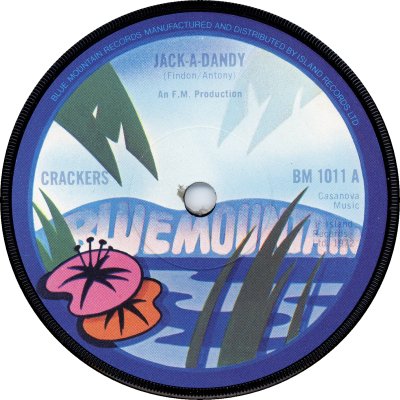
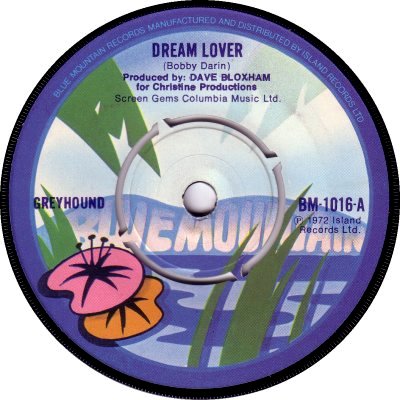
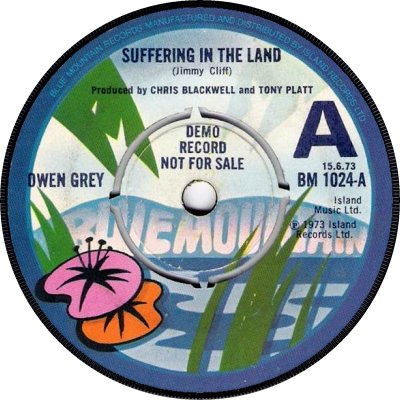
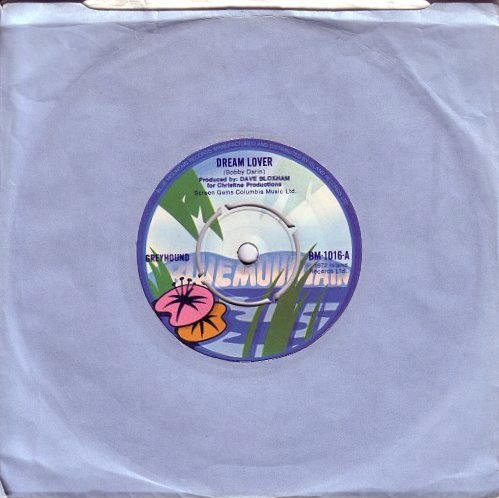
Blue Mountain started out as a Pop label and ended up as a Reggae one. It began life as the publishing company of Island Records, and when it evolved into a record label the label design showed a family resemblance to that of Island in that the company's name was 'built in' to the appropriate geographical feature. The plain pale-blue company sleeve parallelled the plain pink one of Island's singles, as well. Blue Mountain received its first mention in 'Music Week' in the issue of the 23rd of October 1971, which stated that Island's music publishing division was to launch its own label in November; the material on it would be Pop only, and would be 'not in Island Records' image'. 'MW' of the 6th of November revealed that the launch would take place the following week, and that Dave Howson had been recruited to act as label manager for both Blue Mountain and Maple Annie (q.v.). It looked as though the writing might possibly be on the wall for Blue Mountain a mere eight months later, when 'MW' of the 15th of June 1972 broke the news that Island was to soft-pedal its Blue Mountain Productions unit, while retaining the label and the publishing division Instead it was reborn as a dedicated Reggae outlet: Island split from Trojan (q.v.) shortly afterwards, and Blue Mountain provided a ready-made home for records which would have appeared on the Trojan family labels. The change from Pop product to Reggae took place in October 1972, and Blue Mountain was advertised in 'MW' of the 7th of that month as 'Island's new Reggae label'. Around twenty-eight singles were issued, during the entire period 1971-73; numbering was in a BM-1000 series. Several Blue Mountain acts - McGuinness Flint, Scott English, Greyhound, and the Harry J. All Stars - had scored Chart hits previously; Lorna Bennett's 'Breakfast In Bed' (BM-1013; 1972) would go on to become a Reggae classic, and Bob Marley & The Wailers were to become a household name; but none of their Blue Mountain records charted. The final Blue Mountain single came out in May 1973; from that point Island's Reggae material came out on the main Island label, mixed in with the company's other product. As can be seen from the scans, printing on the labels could be in paler or darker blue; the pale kind wasn't all that easily legible. Not many of the singles came in demo form; the ones that did were marked in the standard EMI manner (3) - thanks to BillyTwo of the 45cat site for permission to use his scan here. As was the case with the parent company, manufacture of singles was by EMI and distribution was mainly by Island, with EMI servicing the shops that Island didn't reach.
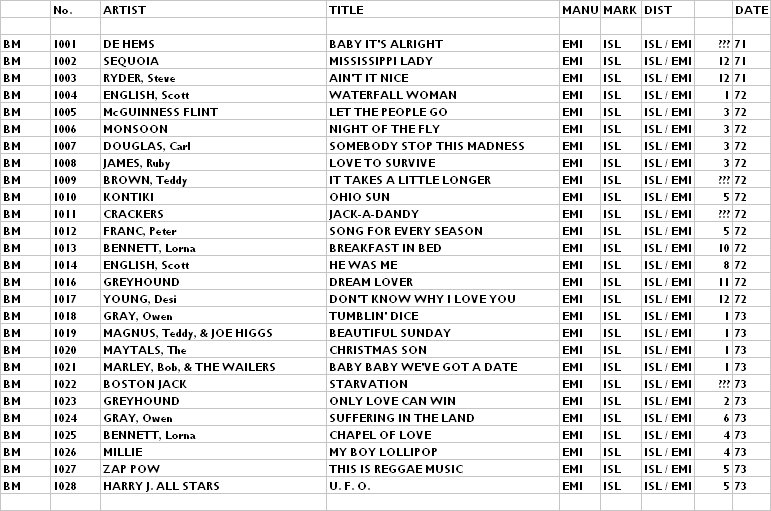


Copyright 2006 Robert Lyons.

